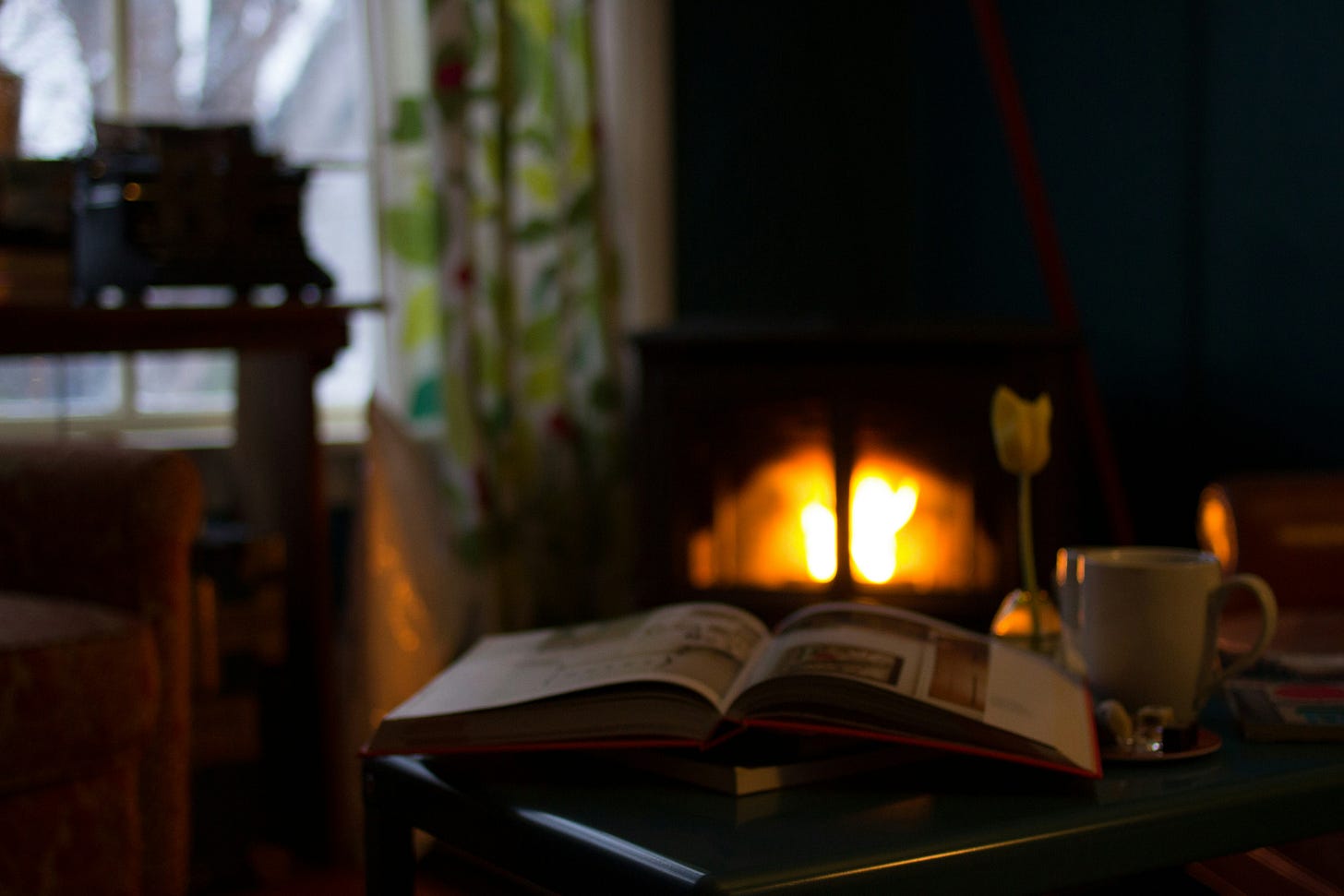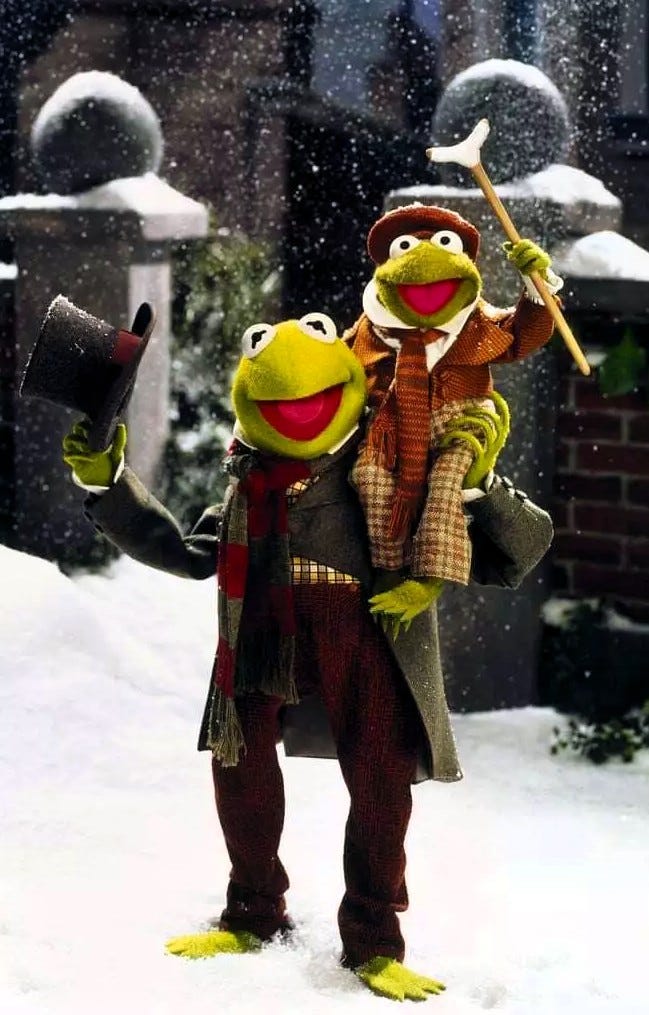Self on the shelf
How hundred-dollar holidays have saved us from humbuggery
Let’s be honest. I would rather go to the dentist than go shopping, especially once the gingivitis of holidays — Black Friday — is upon us. Luckily, it’s not difficult to avoid since our friends and family are far more interested in time together than the swapping of stuff.
Don’t get me wrong. I adore giving presents. But the lunacy of the Christmas season has almost turned me into a furry green troglodyte whose heart is two sizes too small.
To hold on to our sanity, we have once again embraced Bill McKibben’s notion of the Hundred Dollar Holiday.1 Most of the presents we give will be homemade or handmade, and instead of shopping excursions, there will be plenty of time spent volunteering or gathering with loved ones.
It just makes sense. The ideas of simplicity, minimalism, and sustainability are woven into our lives. We grow food on an urban farm and power our home with the sun. We buy secondhand clothes and work hard to keep our possessions to a minimum. It would be hypocritical if we put up blinders to the environmental costs of all that holiday production, packaging, transportation, and excess – never an easy task when advertisers assault your sense of self-worth by equating your love for others with the size of the gifts you give them. So what’s a person to do?
Each of us will answer that question differently based on our own needs and circumstances, but here are a few of the changes Brad and I have made, in an effort to separate the signal from the noise:
During the growing season, I make several batches of jellies, jams or pickled concoctions to share, so there’s no scrambling for gifts. And Brad, a recovering music journalist, compiles a mixtape of his favorite songs of the year along with some pretty thoughtful liner notes, which he gives as his annual Skeleton at the Feast collection.
Long ago, we decided to celebrate the twelve days of Yule, kicking things off with a simple meal on the winter solstice, made with ingredients grown by us or our friends. The idea of honoring the darkest night of the year, and then welcoming the return of the sun, is one that deeply resonates. Also, I like the idea of extending the merriment after Christmas, when I’m just starting to feel festive without all the stress and chaos. So each of those twelve days until January 1, we give ourselves a few minutes to play, to explore nature, and to be still.
Not every gift is handmade. Each year, Brad and I exchange books with close friends, the selection of which is something we look forward to. And we’ve adopted the tradition of giving each other a new book on Christmas Eve to read together that night by the fire.
In lieu of a tree this year — with all the mess and stress of decorating, then undecorating — we hung up a cloth advent calendar. Every morning after breakfast, we start the day with a small treat: a new tea, a packet of hot chocolate, a little candy. The gifts only cost pennies, but the giving of them sets a generous tone for the whole day.
I keep a running list of winter experiences that recharge my batteries instead of draining them, so I always have on-hand activities to choose from that make me feel alive, not just ambivalently swept along. A quick sample: decorating a yule log, watching “The Thin Man” or “The Holdovers”, listening to Patrick Stewart’s staged reading of “A Christmas Carol”, inviting neighbors over for coffee, enjoying a free concert, birding in the cool morning air.
Don’t be fooled, though, into thinking that once you’ve made up your mind to pull out of the rat race (or is that the reindeer race?), you’ll never be sucked in again. Rather, it’s a decision that must be made over and over, with each year presenting a new set of challenges and considerations. Just last year, when December 26th finally rolled around, we were exhausted from over-ambitious gift-making plans and ten parties in four weeks. I was a bah-humbug-screaming Scrooge who swore off any future holidays.
But many things this year have reminded me that life is too short for bah humbug so, instead, I’m focusing on what fills me with joy or wonder. I hope you’ll do the same. Remember to say yes when you actually want to say yes; say no when you want to say no; be kind to yourself, to your neighbors, and to the world around you; be generous with your time and love; eat good food; and in the words of Jim Henson and John Denver, “Say a prayer for the wind and the water and the wood/And those who live there too.”
In the interest of transparency, since first reading Bill McKibben’s book in 2013, we’ve increased our spending to $300, to account for the rising costs of things like stamps and groceries. But you get the drift.


